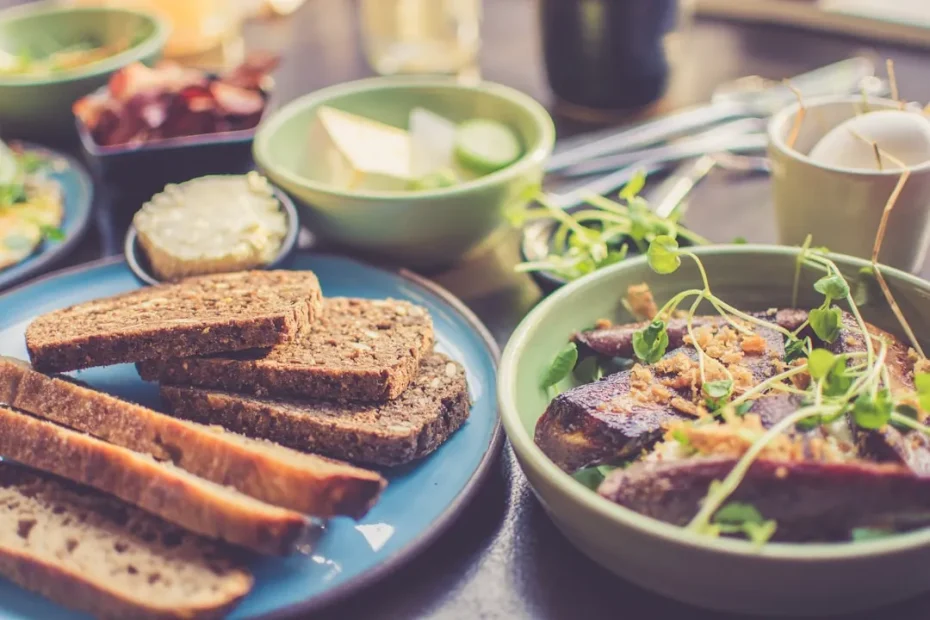If you're on the carnivore diet, grass-fed butter is the clear choice for adding healthy fats and flavor to your meat-based meals.
The carnivore diet, also known as the all-meat diet, has grown in popularity over the last few years. As the name suggests, it involves eating only animal foods like meat, fish, and eggs. Since plants like fruits, vegetables, grains, and legumes are restricted, finding ways to add fat for energy and calories can be challenging.
This is where butter comes in handy! But with so many options on the market, how do you know which kind is best? I've tried a variety of butters on my carnivore journey, and here's what I've learned.
Why Add Butter to the Carnivore Diet?
Before diving into the butter basics, let's look at why you need it in the first place. When removing all plant foods from your diet, you also eliminate a major source of fat. Without adequate fat intake, you may struggle to meet your daily calorie needs. Butter and other animal fats like tallow or ghee can help fill this gap.
Here are some of the top reasons to eat butter on a carnivore diet:
- Provides essential fatty acids like conjugated linoleic acid (CLA)
- Increases fat intake for energy and stable blood sugar
- Adds richness and flavor to otherwise bland meat dishes
- An excellent high-heat cooking fat
- Helps fat-soluble vitamin absorption like A, D, E, and K
- Contains butyrate, a beneficial short-chain fatty acid
So butter offers more than just calories—it also provides important nutrients and compounds to support your carnivore goals.
1. Grass-fed butter is Best
Now that you know why butter matters, let's discuss the different types. While you can find many varieties on grocery store shelves today, not all butters are created equal.
When it comes to the carnivore diet, grass-fed butter is hands-down the best choice.
Higher in Nutrients
Grass-fed butter contains higher levels of vitamins A, D, E, and K as well as CLA compared to grain-fed options. Ruminants like cows convert carotenoids from grass into vitamin A and vitamin K2—both extremely important on a plant-free diet. Grass-fed butter also provides a better ratio of omega-3 to omega-6 fatty acids.
No Sketchy Additives
Conventional butter often contains preservatives, artificial colors, flavors, or other questionable ingredients. With grass-fed butter, you get a natural, additive-free product.
Better Taste and Texture
In my experience, grass-fed butter has a richer, creamier flavor. The bright yellow color is also more appetizing than the pale hue of conventional butter.
Supports local Small Farms
Choosing grass-fed butter supports ethical family farms focused on regenerative grazing practices. So you can feel good about the social and environmental impact of your purchase.
When sourcing grass-fed butter, look for brands that state “100% grass-fed” or “pasture-raised” on the label. Kerrygold is a popular and widely available option. Small-batch butter from local farms also makes an excellent choice.
2. Ghee
Ghee, or clarified butter, is my choice when I want a butter oil with a higher smoke point. Here's why it's great for carnivores:
Removes Milk Solids
The process to make ghee removes the milk solids and lactose from butter. This makes it easy on digestion. Many find ghee easier to tolerate than regular butter.
Higher Smoke Point
With the milk solids removed, ghee has a smoke point of around 485°F rather than just 325°F for butter. This makes ghee ideal for higher-heat cooking.
Adds Great Flavor
Ghee has a lovely nutty aroma and taste. I love using it for frying eggs, searing steaks, roasting vegetables, and more. It adds a rich depth of flavor.
When shopping, go for ghee made from grass-fed cow's butter. Organic Valley makes a high-quality choice.
3. Goat Butter
For those sensitive to cow's dairy, goat butter can be a nice alternative for carnivores. Here's what makes it different:
Smaller Fat Molecules
Goat's milk has smaller fat molecules, making it easier to digest for some individuals. Many who struggle with cow's butter find goat butter easier on the stomach.
Milder Flavor
Goat butter has a lighter, tangier flavor compared to cow's butter. Some describe it as a cross between butter and olive oil. The taste is quite subtle.
Similar Nutrition
While the flavor varies, goat butter has a very similar nutrition profile to cow's butter. It's rich in vitamins A and E and provides high-quality fats.
When buying, look for goat butter from pasture-raised goats, ideally certified organic. Mt. Capra makes a great option.
Watch Out for These Butter Varieties
Now that you know grass-fed is the gold standard, let's look at some butter varieties that don't make the carnivore cut.
Whipped Butter
While whipping incorporates air to make butter fluffier, it also often adds vegetable oils, preservatives, and stabilizers during processing. Steer clear of whipped options and stick to traditional butter instead.
Low-fat Butter
Reduced-fat butter seems like a healthy choice, but it's highly processed and often includes additives to replace the flavor and texture lost from removing the fat. Plus, on a high-fat carnivore diet, you want the full fat versions!
Margarine/Spreads
Margarine and butter “spreads” are highly processed imitations packed with industrial seed oils and other unnatural ingredients. Always check labels for the words “butter” specifically.
Sweet Cream Butter
This type isn't necessarily bad. But it's not ideal because the cows weren't grazing on green pastures high in nutrients. Stick with grass-fed options for the carnivore diet whenever possible.
How Much Butter on a Carnivore Diet?
When it comes to how much butter to eat on a carnivore diet, listen to your body. Here are some general tips:
- Start with 1-2 tbsp per day with meals
- Increase if cravings persist or energy is low
- Target 2-3 tbsp or about 50-75g total daily
- Adjust based on hunger, energy needs, activity level
The fatty acids in butter help regulate appetite hormones, provide fuel for cells, and help absorption of fat-soluble nutrients. Don't fear the butter on carnivore – let it power your low-carb lifestyle!
Making Butter Work for You on a Carnivore diet
Butter is pretty versatile, so getting enough on a carnivore diet is simple. Here are some of my favorite ways to eat it:
- Cook eggs, meat, and seafood in butter instead of using other oils
- Add a pat to steaks, burgers, and pork chops as they cook for extra richness
- Melt over grilled meats or fish to create an instant sauce
- Blend into hot coffee for a satisfying morning drink
- Mix with seasonings like garlic, rosemary, or orange zest to create flavored butter
- Add a teaspoon or two to fatty cuts of meat while braising or slow-cooking
- Use as a spread on meat roll-ups, sandwiches, or burgers instead of condiments
Don't limit yourself to these suggestions—get creative with recipes! Butter can bring new life to otherwise mundane carnivore meals.
I recommend aiming for at least 1-2 tablespoons of butter daily, adjusting this amount based on your individual calorie needs and diet preferences. Listen to your body, and increase your intake if you have low energy, cravings, or other signs that you need more fat.
The Takeaway: Choose Grass-Fed Butter
Butter isn't just a beneficial addition to the carnivore diet—it's an absolute necessity for hitting your fat macros. Be sure to choose organic and grass-fed varieties whenever possible for superior nutrition and health benefits. With so many roles it can play in carnivore cooking, butter is a tasty tool you don't want to miss.
So grab some Kerrygold or local pastured butter on your next trip to the store. Your carnivore meals will instantly transform with this flavorful and nutritious addition! Let butter enhance your animal food dishes while supporting your all-meat goals.
FAQ
Is butter a dairy product?
Yes, butter is a dairy product made from milk fat. It contains traces of whey and casein proteins found in milk. For those opting for a dairy-free carnivore diet, ghee and lactose-free butter are better options.
Is salted butter ok on a carnivore diet?
Lightly salted butter is fine in moderation on carnivore, but avoid heavily salted varieties. Too much-added salt can contribute to electrolyte imbalances. Go for grass-fed unsalted butter whenever possible.



